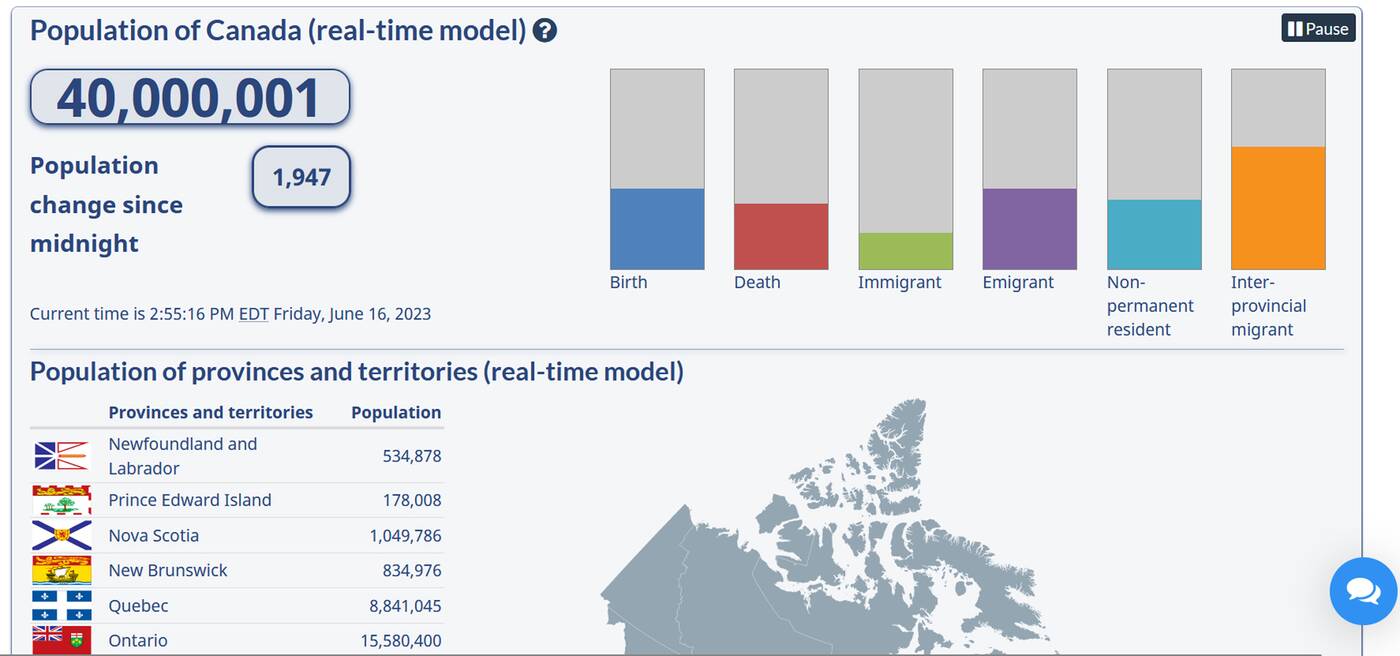
Canada's population just hit a major milestone
Canada's population has hit 40 million.
According to Statistics Canada's population clock, the country hit the major milestone at around 2 p.m. on Friday, June 16.
The tracker measures the changes by taking into account the rate of births, deaths, immigrants, emigrants, non-permanent residents, and inter-provincial migrants.
"This is an exciting milestone for Canada," said chief statistician Anil Arora in a statement. "It is a strong signal that Canada remains a dynamic and welcoming country, full of potential. As we head into Canada Day, this is certainly cause for celebration!"
StatsCan had predicted earlier this week that the population would reach 40 million just before 3 p.m.
 A Statistics Canada representative told Daily Hive that Canada's population has been growing "at a fast pace over the last months."
A Statistics Canada representative told Daily Hive that Canada's population has been growing "at a fast pace over the last months."
From January 2022 to January 2023, the country added a record-breaking 1,050,110 people, equivalent to the entire city population of Edmonton or Ottawa.
The growth represents a 2.7 per cent year-over-year increase from 2021. It's the highest annual growth in the population growth rate on record since 1957, when there were a high number of births during the post-war baby boom and the high immigration volume of Hungarian Revolution refugees.
In 2022, 95.9 per cent of the growth was driven by international migration. Last year, Canada added a total of 431,645 new permanent residents to the country and the government plans to add 500,000 new permanent residents a year by 2025 to address labour shortages.
As for the most populous provinces, Ontario currently has the largest number of people at 15.5 million, followed by Quebec with a population of 8.8 million, and BC with 5.4 million people.
With files from Kenneth Chan and Irish Mae Silvestre
Tom Carnegie
Latest Videos
Latest Videos
Join the conversation Load comments







